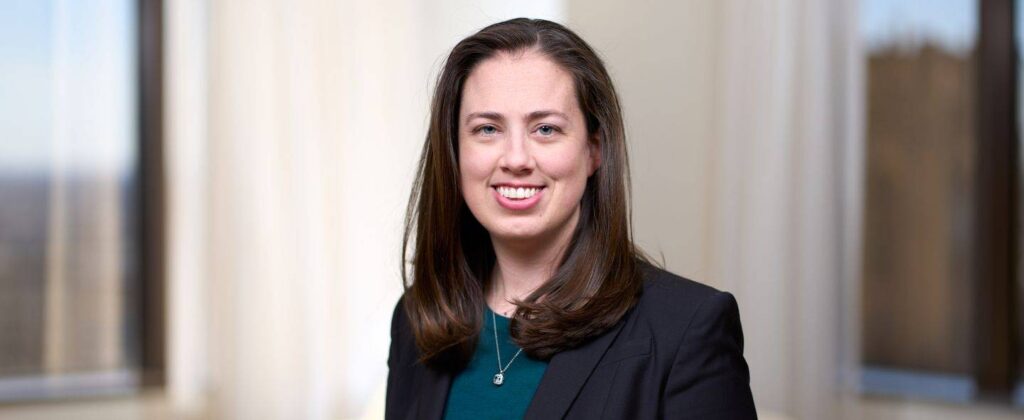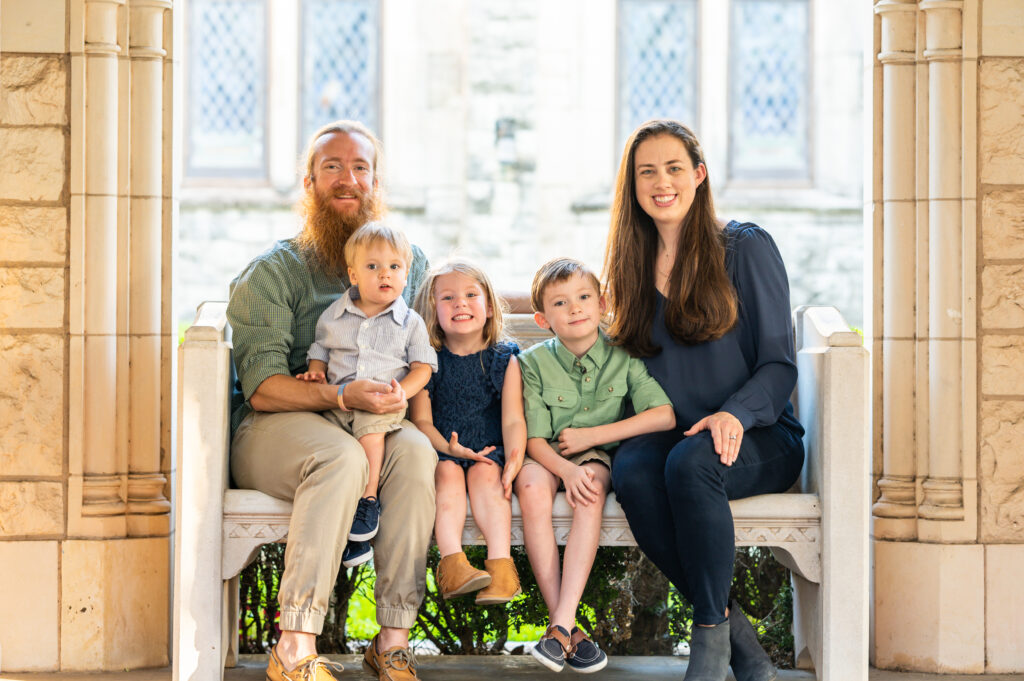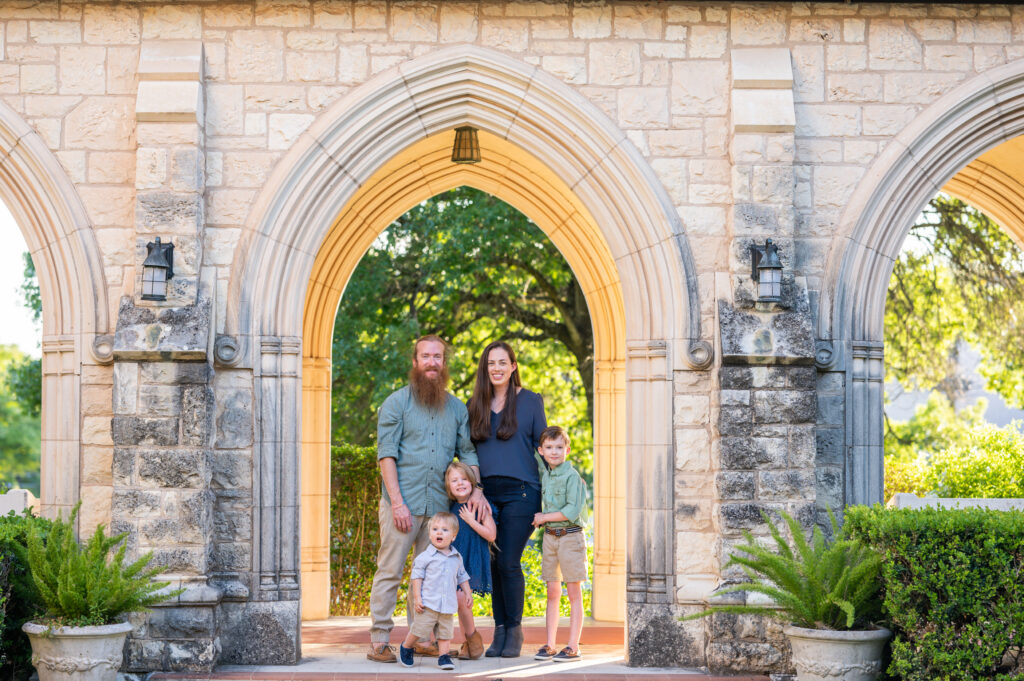
A career in law meant opportunities for Dykema member Melanie Fry.
Fry’s father, Ron Booker, went to law school at night at the University of Houston. After six years, he graduated, and the family traveled to Austin for the swearing-in ceremony.
“I remember the new dress I got to pick out. I got to go to Austin and watch his swearing in, and [I have] very vivid memories of that. It kind of really made a mark on me to watch my dad accomplish this. And when he got that degree, it changed our stars,” Fry said.
Her father’s new career meant the family could move to the Houston suburbs and send their children to good schools.
“It just opened doors for my family that I didn’t know existed. I lived that. I experienced it. And so always, from a young age, I knew law school was my ticket. It was a key that opens doors,” Fry said.
That experience stuck with her.
“Watching the power of an education — that’s what drew me into the law,” she said.
Fry recently sat down with The Texas Lawbook to discuss her career and more.
The following conversation has been edited for length and clarity.
Lawbook: What trends are you seeing in your practice area?
Melanie Fry: For me, a large part of my practice is now taken up by serving in the embedded appellate counsel role. It’s a trend that I guess we’ve seen over the past couple of years now that’s just kind of a cemented part of a trial team, is embedded appellate counsel. There’s not a client we have now going to trial that doesn’t say, “Who is embedded for this case?” Even five years ago, I’m not sure we were getting that question. …
I get brought in on some cases fairly early on [and] some cases on the very eve of trial to get ready to go with the team. But in both cases, I feel like I can do some good and be there to support the team and actually do whatever’s needed.
Lawbook: What has been a memorable experience or case in your career?

Fry: One is a case that I was [on] with the trial team, and it’s memorable because we tried it three times to three separate juries in St. Louis, Missouri, so that’s definitely a memorable case for me. … It was a product liability case involving a police officer who was injured in the line of duty, and the allegation of the defect was against his 2012 Chevy Impala. I represented the manufacturer.
The first trial ended in a mistrial, actually, for juror misconduct, which was very interesting to live through. The second went all the way to deliberations, and then a hung jury resulted in a second mistrial. Then the third trial, we showed up and picked a jury and started in on all the evidence, and in the middle of one of the plaintiff’s expert witnesses, the case resolved, and so it was dismissed. But it was very interesting to get to talk to three real juries who saw us present that case three times and get their impressions on the case, on presentation styles on damages — just all kinds of things. To get to interview three different panels of juries was very, very memorable.
The other kind of memorable experience for me on the appellate side was right after COVID started … I had appellate oral arguments scheduled, and I had two back to back. I had one on one day, and the very next day I had another appellate oral argument — but both in the same court here in the San Antonio Court of Appeals, and it was for my first oral argument.
It was the very first day that they were conducting oral arguments online on Zoom, where I was going to sit at my home and be on a camera. … Now that seems like absolutely nothing, but back then that was a first for many of us to be doing something like that — and to see what would the court look like on my screen and what was my background like in my house and what earphones did I need to use and was my microphone OK?
What was memorable about that was that a bunch of attorneys ended up logging in to my oral argument who knew nothing about the case and cared nothing about the oil and gas lease dispute that I was actually arguing. They wanted to see what it would look like because they had oral arguments coming up, and so I had an uncannily large audience for my very first oral argument … with all these random people logging into the Zoom to watch me present oral argument in the Fourth Court of Appeals. That was fairly memorable, and a moment of very tiny celebrity, but it was fun.
Lawbook: You’ve had cases in the state courts and in the U.S. Supreme Court. Do you have any advice for young lawyers?
Fry: I think my advice is just to say yes. Don’t sustain your own objection to your abilities. When opportunities present themselves, be willing to step into it. The two U.S. Supreme Court cases I got to work on were both pro bono matters, and it was because the opportunity came across. I raised my hand, I said I want to be a part of that. It’s a lot of work. It’s not billable work; it’s for a pro bono matter. But it was that kind of matter that got the attention of the U.S. Supreme Court. Whether it is a state district court in your jurisdiction or a federal court across the country, I guess my advice would be, just say yes. Be willing to say yes to opportunities when they present themselves.
Lawbook: What is the best advice you have received?
Fry: The best advice I’ve received is “keep things in perspective.” I have a mentor. His name is David Kinder, and he has been a mentor to me since I was a baby lawyer. … He has been a mentor, a sponsor and an encourager to me all the way through. He gave me this advice and taught me this lesson.
Even now — when a case hasn’t gone the way I planned, or the judge’s ruling wasn’t what I wanted, or I’m just disappointed or distraught and need to vent — I go to him because I know he’s going to tell me the same thing he always tells me, and I simply need to hear it from him again. I’ll gripe to him, and he will look at me, and he will say, “Melanie, did you lose $42 million today?” Or insert other parade of horribles, whatever catastrophic situation, he will put into that phrase. And of course, I will always answer no. Then he’ll say, “Well, then brush yourself off, go home to your children, and I’ll see you tomorrow.” He gives me this incredible gift of perspective.
Lawbook: Do you have a pre-trial ritual?
Fry: When people ask where I live, I often say, San Antonio, Texas or the Marriott next to the courthouse I’m trying the case in, depending on the week. But my pre-trial ritual has become a couple of things. My “need to breathe” playlist is going to be playing on my speaker in my hotel room as I get ready to go down to the war room and then over to the courthouse. “Need to breathe” is kind of my pump-up soundtrack, I guess.
And then I always drink a smoothie packed with vitamin C … to try and stave off getting a cold during trial, which is sort of inevitable when your body is getting physically worn down and mentally you’re tired, and you’re in public spaces all the time, and you’re not eating well. You always get sick during trial. And then I guess it’s not necessarily pre-trial, but Cherry Coke for me at night is what I’ve got in the war room. It is my vice, but it is also my comfort. It’s got some caffeine and some sugar. At the end of a long day in a courtroom, Cherry Coke is what I’m reaching for.

Lawbook: Who is your favorite fictional lawyer?
Fry: Matthew McConaughey in A Time to Kill. He plays Jake Brigance, and I love his closing argument, because he’s just completely authentic and humble and self-deprecating in that. He asks the jurors to also see through the facts to what is happening in the case. And I just, I don’t know, I find it a powerful scene, not because it’s all incredibly realistic, but what I do see that’s realistic about it is that trial lawyers who are authentic in the courtroom do connect with jurors. Trial lawyers who can get out of themselves and remember that they are a normal human being just trying to connect with other normal human beings and just can be authentically themselves — I think there’s power in that in the courtroom.
Lawbook: What are your two or three biggest cases coming up for trial in the next few months?
Fry: I’ve got a product liability suit defending Caterpillar in a case involving an excavator that went into a pond and tragically resulted in a death. That product liability case is set for trial before a jury in mid-October.
I do have one [oral argument] in September representing an insured defendant who experienced a very large verdict against him, like $99 million, and the appeal raises questions about the sufficiency of the evidence for noneconomic damages, which is something the Texas Supreme Court has been very interested in lately and has written on. We’ve had multiple opinions analyzing what juries can do with regard to the award of noneconomic damages and what kind of proof has to be there. This case is going to be right there, challenging that you have a jury who, it’s apparent from the verdict and from talking to them afterwards, that they did choose arbitrary numbers.
Lawbook: What is a hobby of yours when you get a chance to step away from your desk or the courtroom?
Fry: My husband and I are pretty passionate about investing in the community where we live here in San Antonio. And for the last couple of years, we have been really involved in transforming a one-acre parking lot into a community park. That is our funnest hobby … and a passion and thing that we share with our children. It’s been a really fun project to literally watch come to life.
It was a one-acre parking lot — just a heat island. And we bulldozed all of the asphalt, kept it all on site so it didn’t end up in the landfill, and just buried it or created kind of natural berms to make it look like hills around the park. Covered it all in grass and native plants. It was all built very sustainably with water recapture and, obviously, native landscaping. And it’s very accessible for people with all kinds of abilities. It’s absolutely just this tranquil spot … that the community has now completely embraced, and so [I’m] super proud of that. [I] love being over there, and every Saturday we have a farmer’s market. My husband and I are there in the evenings, picking up trash, just making sure the park looks nice or sweeping gravel off the sidewalk to make sure it’s pristine. But that’s our hobby. Our passion is that beautiful park. It’s called Charis Park, and it’s been really fun to invest in the place, but more importantly, invest in the people. It’s been life changing.
If you or someone you know would like to be profiled in a future edition of Asked & Answered, please let us know at tlblitigation@texaslawbook.net. Check out our other “Asked & Answered” interviews below:
Jackson Walker partner Juan Alcala discussed teaching and why he left Holland & Knight. He talked about representing Chevron and arguing before the Fifth Circuit Court of Appeals. Alcala also told The Lawbook that working out is his escape from stress when he’s not working.
Gibson Dunn & Crutcher partner Trey Cox discussed some of his recent big verdicts and what’s in the pipeline. With another trial on his calendar in October, Cox told The Lawbook in a recent interview he plans to keep the momentum going.
Vinson & Elkins partner Quentin Smith discussed securing an $80 million breach of contract verdict for Huntsman Chemicals in Louisiana and representing Oncor Electric in litigation stemming from Winter Storm Uri. Smith began his career with Vinson & Elkins 21 years ago as an intern in the firm’s high school program.
